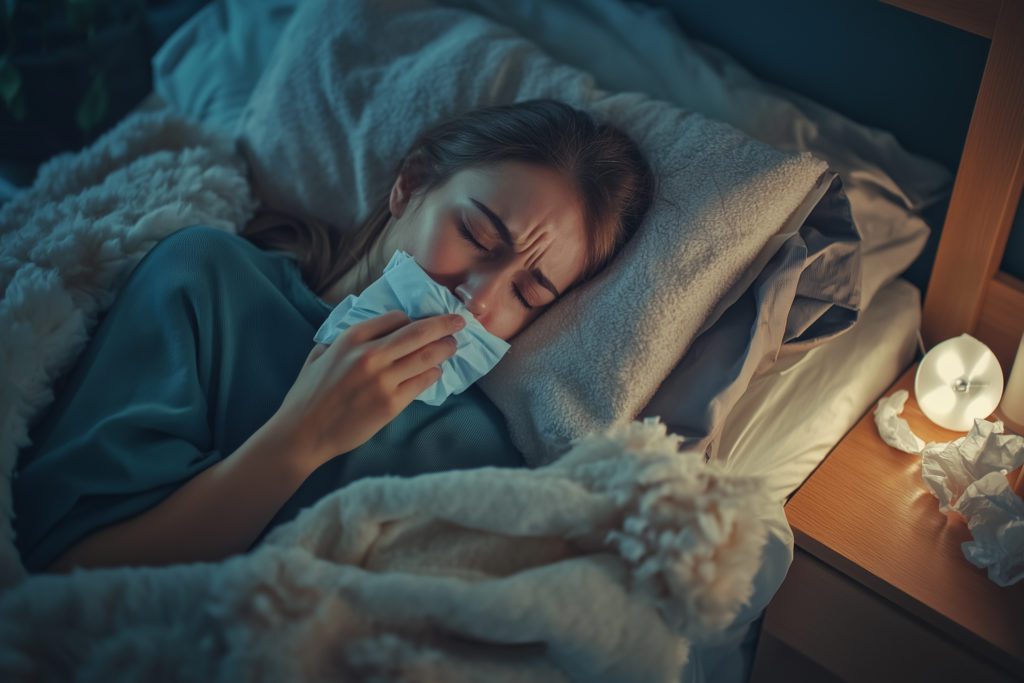
How Safe Are Over-the-Counter Sleep Supplements for Long-Term Use?
Over-the-counter sleep supplements can help you sleep, but are they safe long-term? Explore possible complications of their long-term use and safer habits.

If you struggle to fall asleep, you may find yourself reaching for a sleep aid to help you finally drift off to sleep. Yet you may soon get to the point where you cannot fall asleep without the sleep supplement—what do you do then?
While OTC sleep supplements are not addictive in the way that prescription versions can be, you may still become reliant on them to fall asleep, and while they can work in a pinch, they’re not recommended long-term. However, there are habits you can implement to take the place of your OTC sleep supplement.
OTC Sleep Supplements
Over-the-counter (OTC) sleep supplements are those that can be purchased in a pharmacy or other store without a prescription. While you don’t need your doctor to write you a script for them, these drugs must still meet FDA standards, although they are not regulated to the same standard as prescriptions.
OTC sleep supplements are generally first-generation antihistamines, which are a type of allergy medicine that produce a sedative effect on the body. The antihistamines most often used in sleep aids are diphenhydramine and doxylamine, and they may be used alone or with other ingredients.
The side effects of OTC sleep supplements can include:
- Daytime drowsiness. Antihistamines may cause you to wake up groggy, which can affect how well you function during the day, something that can be especially dangerous if you will be driving.
- Cognitive impairment. It’s normal to feel foggy or mentally out of it after taking an OTC sleep supplement, which can increase your risk of injury or impact your work performance.
- Dry mouth. Those who take antihistamines may experience excessive dryness of the mouth, nose, or throat.
- Withdrawal. Some people who stop taking OTC sleep aids find that their sleeping problems come back.
While antihistamine sleep aids can help with short-term sleep problems, the American Academy of Sleep Medicine (AASM) does not recommend their use for treating insomnia. This is because there is little evidence supporting OTC antihistamines for insomnia treatment. Even more, their long-term use can be harmful.
The Dangers of Daily Sleep Supplement Use
Taking prescription sleep medications long-term can be dangerous. Researchers have found that mortality (death) can increase in a dose-dependent manner for those taking prescription sleep aids, meaning the longer you use the sleeping aid, the greater your risk of death. The results of a 3-year-long study suggest that anyone using hypnotic/anxiolytic sleep aids should limit them to two to four weeks.
Many people may think that an OTC option is safer long-term, but long-term antihistamine use has also been linked to various health concerns, including increased cancer risk. Antihistamines also exhibit anticholinergic effects, which have been linked to dementia and Alzheimer’s disease with long-term use.
While you may start to rely on sleeping pills to get the sleep you need, there’s one good thing about OTC sleeping pills: they’re not addictive in the way that prescription sleeping pills can be. This means that your body won’t physically become dependent on them to fall asleep, and stopping their use will be easier, although you may have a hard time convincing your mind that the supplement is not needed for sleep.
Safety Considerations for Sleep Supplements
If you’re considering reaching for a sleep aid, keep the following things in mind to ensure you’re doing it safely.
Mind Your Combinations
Whenever you’re taking a medication long-term, you need to be aware of how it interacts with other drugs, and OTC sleep aids are no exception.
For example, alcohol should be avoided when you use sleeping pills, as combining the two can lead to excessive drowsiness, the sedative effects of each stacking on top of the other. Not only can this make getting through the day difficult, even hours after you’ve had alcohol or taken a sleeping pill, but it can slow your reaction times, increase the risk of injuries or accidents, and lead to memory issues. In some cases, combining alcohol and sleeping pills can slow your breathing enough to lead to death.
Furthermore, anyone who takes prescription medication or other regular supplements should check with their doctor about whether an antihistamine sleep supplement will interact with these other medications and what possible adverse reactions may result.
Talk to your OB-GYN If You’re Pregnant
Research has shown a link between sleeping pill use—benzodiazepines, specifically—and birth-related outcomes such as increased neonatal intensive care unit (NICU) admissions and preterm birth risks. Because of this, if you’re pregnant, it’s recommended that you talk to your OB-GYN before taking any sleep supplements to ensure that they are safe for you and your baby.
Remember Your Age
Those who are older should be careful when taking OTC sleep aids because they can impact your coordination and concentration. With older individuals already at an increased risk of falling due to declining muscle mass and balance, the drowsiness and slowed reaction time experienced after taking an OTC sleep supplement may make this even worse, leading to a possible injury.
Take The Right Dose
One of the most important things to remember about sleep supplements is that overdose is possible and can slow breathing to a dangerous level. If you take sleep supplements long-term, you may develop a tolerance and feel that even after a dose of the sleep supplement, you still cannot fall asleep, but it’s important not to take another dose that night unless your doctor has explicitly advised you to do so.
Along with dosing, it’s also important that you take the right dose at the right time. Otherwise, you may find yourself extra drowsy during the day, which can increase your risk of injury.
Improve Your Sleep in Safer Ways
While a sleeping pill can offer immediate rest, improving your overall sleep habits will offer a much safer, especially in the long-term, solution for your sleep problems.
You can improve your sleep hygiene by:
- Have a set sleep schedule. Go to bed and wake up at the same time each day, and try to avoid daytime naps—they may be why you cannot fall asleep at night.
- Follow a nightly routine. Our bodies love routine, and you may have made taking a sleeping pill a part of yours. Swap that out for other sleepiness-boosting habits like listening to calming music, stretching, reading, or meditating.
- Optimize your environment. Set your night up for success by removing anything that can keep you up. Turn your phone on do not disturb (or, even better, kick it out of the bedroom entirely), keep the room dark, and use colored noises or a fan to block out any sounds.
- Get outside. Getting sunlight can help regulate your circadian rhythm, which can then make nights easier. To further boost your sleepiness, get physical activity while outside each day.
When you cannot sleep at night, you may find it easier to reach for a sleep aid, but implementing these habits can create a healthy sleep routine that nurtures each aspect of your circadian rhythm, offering you better sleep without reliance on an OTC sleep supplement. This way, you can sleep better without worrying about daytime drowsiness or how the medication may interact with other drugs you take.
By focusing on your sleep hygiene, you can sleep better all on your own, with no aid required.

Written by
Jessica G
Medical writer freelancer who has written hundreds of articles on varying topics. Masters of Engineering degree in Biomedical Engineering.
Download Pillow
Get help
Press & News
Legal
Connect
X (Twitter)
Company
Copyright © Neybox Digital Ltd.



